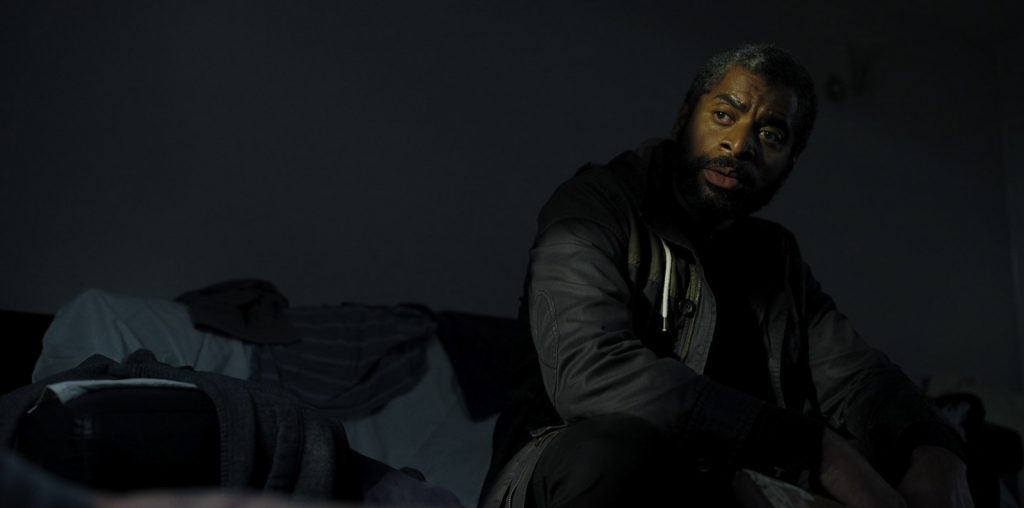
“The Darjeeling Limited” is a Wes Anderson movie. Which is to say, it has copious amounts of slow motion shots, meticulous production design, sparse yet poignant music cues and a dark, dry comedic tone. So if that’s the reason you love Wes, well, “The Darjeeling Limited” won’t let you down. If it’s that undercurrent of love and sentiment that Anderson normally weaves within the quirks, then this might not be your new favorite.
Having been estranged since the death of their father a year prior, Francis requests that his two brothers join him on a “spiritual journey” across India in an attempt to re-connect and re-build the family. Brother Peter (Adrien Brody) is a quiet, brooding middle-child who has taken to collecting all of his father’s previous possessions for himself. Jack (Jason Schwartzman) is the youngest of the family, and he’s been escaping the tragedy of his father’s death via “fictional” short stories, traveling abroad and trying to hide out from, despite continually obsessing over, an ex-girlfriend (watch “Hotel Chevalier” for more on that). Francis (Owen Wilson) is a physical wreck, bandaged and scarred from a motorcycle accident, but as the oldest, it is he who feels he must save the family. The three connect on the train “The Darjeeing Limited” and set across India, following the daily itineraries created by Francis’ assistant Brendan (Wally Wolodarsky).
“The Darjeeling Limited” is both just like every other Wes Anderson film and yet not like any other Wes Anderson film. All the signature moves are in place as mentioned above, but the whimsy is missing in this endeavor. The film is emotionally void; blank. The characters may have quirks (none interesting), but nothing else going for them. The family is obviously rich, and the brothers carry themselves with that regal disregard for anything and anyone that doesn’t affect them personally, and except for the fact that their father died, it’s hard to understand why they felt the emotional need to be so estranged from each other in the first place, or why we should even care.
Owen Wilson hearkens back to his performance as Dignan in Anderson’s debut “Bottle Rocket,” though Francis is more overbearing and catty. Adrien Brody delivers a solid performance that gets bolstered by a random catharsis-tragedy (more on that in a second) and Jason Schwartzman is just creepy. There’s a scene where Jack finds himself in the carnal embrace of a gorgeous train attendant Rita (Amara Jaran), and there’s a move he employs on her that reminds me of the Sexy Stud spitting on his hand prior to violating a donkey in “Clerks II.” If you haven’t seen “Hotel Chevalier,” it’s very possible you walk away thinking Jack is an a*****e and not, say, misguided.
As I mentioned, and I apologize for the coming vagueness as I don’t want to give anything away, there’s a catharsis-tragedy that occurs prior to what could be considered the Third Act, wherein Peter is forced to step outside of himself and confront both the minus of the tragedy but also the overall gift that he has been given elsewhere in his life (which is, his wife is pregnant and he just skipped town to hang with his brothers without telling her). This allows the Peter character to make true emotional advancement in an otherwise static film, but feels like a forced cop-out. Without this tragedy, there’s no growth and… Anderson has been so good in his previous films at delivering growth and catharsis without forced tragedies (except “The Life Aquatic,” wherein Bill Murray’s Steve Zissou was moving along just fine and yet Anderson still felt the unnecessary need to kill off Owen Wilson’s character to really hammer that character development home).
“The Darjeeling Limited” isn’t so bad as to offend those who love Wes Anderson too much, but it is not the triumph that his previous films have been. If I had to pile them up in order of appreciation, this one is definitely the bottom. If Anderson’s personal style is such that we can always tell a Wes Anderson movie from the outset, then the style has become commonplace for him, and therefore no longer a proper judgment point for us as an audience. Instead, we have to look beyond it and allow the story and characters to rule the piece, and in this case, they don’t deliver.
